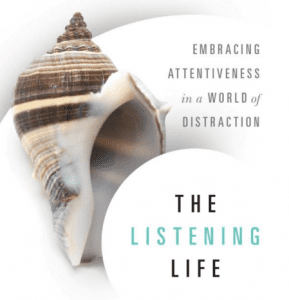Bruce W. Longenecker, Remember the Poor: Paul, Poverty, and the Greco-Roman World.
Reviewed by Wes Vander Lugt
PhD candidate, University of St Andrews
 Caring for the poor is a prominent theme throughout the Bible, but some argue that the apostle Paul is an exception to the rule. According to this perspective, Paul’s main concern was the Gospel of Jesus Christ to which the plight of the poor was a peripheral issue. Is this perspective accurate, or does it misread and misunderstand Paul’s concern for the poor? If this is a question that you have wrestled with, then Remember the Poor is a great book for you. Through careful reasoning on a range of exegetical and historical issues, Longenecker seeks to dispel this myth and to demonstrate that concern for the poor was central to Paul’s message and ministry.
Caring for the poor is a prominent theme throughout the Bible, but some argue that the apostle Paul is an exception to the rule. According to this perspective, Paul’s main concern was the Gospel of Jesus Christ to which the plight of the poor was a peripheral issue. Is this perspective accurate, or does it misread and misunderstand Paul’s concern for the poor? If this is a question that you have wrestled with, then Remember the Poor is a great book for you. Through careful reasoning on a range of exegetical and historical issues, Longenecker seeks to dispel this myth and to demonstrate that concern for the poor was central to Paul’s message and ministry.
Longenecker begins by describing the socio-economic dynamics in first-century Palestine: an advanced agrarianism with power resting in the landowning elite and a large segment of manual laborers existing at subsistence levels. It was a culture of “elite acquisitiveness,” the elite becoming more elite by gaining more power. The Hebrew prophets condemned unrestrained acquisition, and Jesus took it to a radical new level, condemning honor gained through unjust means that trampled the poor. Longenecker resists simplistic, binary models of the first-century socio-economic spectrum, however, preferring more nuanced models based on careful research rather than rhetorical preferences. He proposes a detailed scale of economic distribution, modifying earlier proposals by Scheidel and Friesen, while warning that generalizations of this nature still lack appropriate nuance.
Despite economic bifurcation, charity was not altogether absent in the Greco-Roman world, but was mostly limited to almsgiving on the basis of various motivations. Longenecker insists that those who present a stark, charity-less portrait of the Greco-Roman world are seduced by sensationalist, black-and-white historiographies with no attention to gradations and shades of gray: a good reminder for any historian.
In the second half of the book, Longenecker addresses texts and paradigms directly related to Paul’s concern for the poor. If both the Old Testament and the Gospels include a plethora of passages regarding the poor, is there a shift in the letters of Paul? Did Jesus and Paul really have different perspectives on this? Several particular passages suggest otherwise: 2 Cor 9:13, Gal 6:20, 1 Thess 5:14, Rom 12:13, 1 Tim 5:3, 6:18. But no passage is more contested than Galatians 2:10, where Paul recounts the elders’ admonition to “remember the poor.” One common interpretation is to identify a particular group of Ebionites in Jerusalem as “the poor.” Longenecker opposes this interpretation, partly because it only appeared after the 5th century contra Tertullian, Origen and Athanasius, but also because it does not fit with the literary-historical and rhetorical context of Galatians. In sum, Paul certainly made a special collection for the poor (not just the Ebionites) in Jerusalem (Cf. Acts 24:17), but this was something Paul was already doing in other places, for both Jews and Gentiles.
Longenecker convincingly argues that Paul’s overall care for the poor was not dismissive, but intrinsically connected to “Spirit-inspired, cruciform morality.” Whereas circumcision was non-essential, care for the poor was an essential element of faith for early Christian communities. In the latter chapters of the book, Longenecker applies his economic models developed earlier to Christian communities, and provides the historical background for understanding the communal generosity permeating the New Testament. This generosity was neither an expression of communism nor mere charity, but care for each other as members of a new community, the rich having an opportunity to give and the poor an opportunity to receive. Whereas this generosity was primarily directed to those within Christian communities because of the vast needs, Longenecker maintains that care for the poor outside the Christian community is not excluded (Cf. 1 Thess 5:15).
In the last chapter, Longenecker attempts to tie up some loose ends, including Paul’s personal economic status, which can be identified as moderately secure, although Paul intentionally adopted a lower status for the purpose of gospel ministry. Indeed, Paul’s personal generosity extended far beyond giving to the poor, and included his willingness to suffer and even die for his Christian family. Perhaps the most beneficial part of this last chapter is the summary of Longenecker’s arguments (298-99), which emerge throughout the book but are not always articulated succinctly.
Readers without an interest in the academic debates regarding the socio-economic spectrums in the Greco-Roman world or particular exegetical decisions may find this book hard to digest. Some parts of the book will appeal to a more popular audience, but in general this is an academic volume aimed at a scholarly audience. Since biblical studies is not my field of expertise, I am not in a position to evaluate several more technical arguments in the book, but I know enough to appreciate Longenecker’s logical clarity, historical nuance, and exegetical skill.
In addition, there is no doubt that Longenecker’s academic work is relevant to the practical question posed at the beginning of this review. Caring for the poor was important for Paul. In fact, common assumptions regarding Paul’s disregard for the poor are often based on a shallow reading of texts and unexamined assumptions, which are precisely what Longenecker dismantles with his careful study. Consequently, I would be excited to see this material condensed and presented in a palatable way to a wider audience. If the church is going to become fully committed to the urgent task of caring for the poor and needy, deep-rooted assumptions such as Paul’s disregard for the poor need to be put to rest. I am thankful for Longenecker’s work, which has the power to impact important academic discussions as well as the life and mission of Christian communities.











